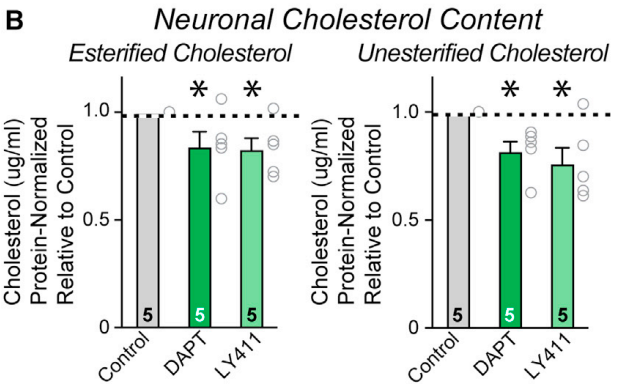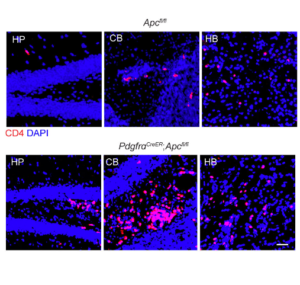
Sofia Essayan-Perez and Thomas C. Südhof – Stanford University. Neuron.
This study found that in human neurons, but not mouse glia, γ-secretase regulates the synthesis of cholesterol. Inhibition of γ-secretase reduced cellular cholesterol levels, and all of the genes most affected by loss of γ-secretase function were involved in cholesterol production and trafficking. γ-secretase inhibition affected synaptic transmission in two distinct ways – it reducted vesicle release probability, which was cholesterol-dependent, and increased numbers of synapses, which was cholesterol-independent. Given the outsized role for cholesterol transporter ApoE in determining sporadic AD risk, cholesterol-dependent regulation of synaptic activity may represent a critical pathway through which γ-secretase affects AD pathology.





